October 9, 2019 - It is tucked away (very neatly) in an almost forgotten part of eastern Croatia, but Popovac Primary School in Baranja is a truly remarkable institution.
One of the things I love most about running Total Croatia News is the randomness of my inbox. Yes, there is lots of abuse from people who object to an article or two that I write (but I am learning to accept and appreciate the abuse as the years go by), but people from all walks of life and all over Croatia (and beyond) contact me for a number of Croatia-related reasons.
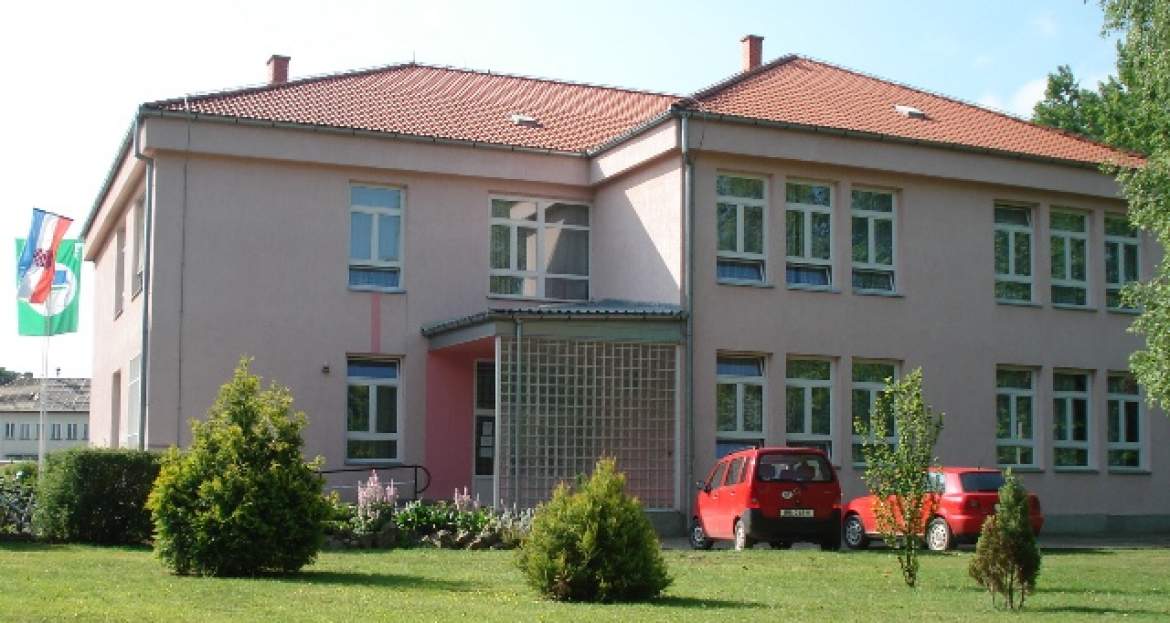
One of my favourite of such emails came from Goran in Baranja a couple of years ago. He wanted to volunteer his writing services so that he could present stories about the lovely region of Baranja, north of Osijek and on the border with Hungary. Goran explained that he was a teacher in primary schools, including Popovac, and it did not take long reading his email to understand how passionate he was about his job, or how much he wanted the best for his pupils:
The Internet connection was much slower in villages than in cities when I started work, but it didn't stop my students from winning an award for the best school website by CarNet (Croatian Academic and Research Network), nor did it stop them from participating in many projects that even brought them to the European parliament in 2009! We are a small school, but with all the activities and projects we have, we're the soul of our village. There aren't many activities out of school for kids and when you offer them something interesting to participate in, they are very motivated and always give their all.
A Baranja school in the European Parliament! And it was indeed true, as Glas Slavonije reported in 2009 (there is a translation below - thanks Lauren).
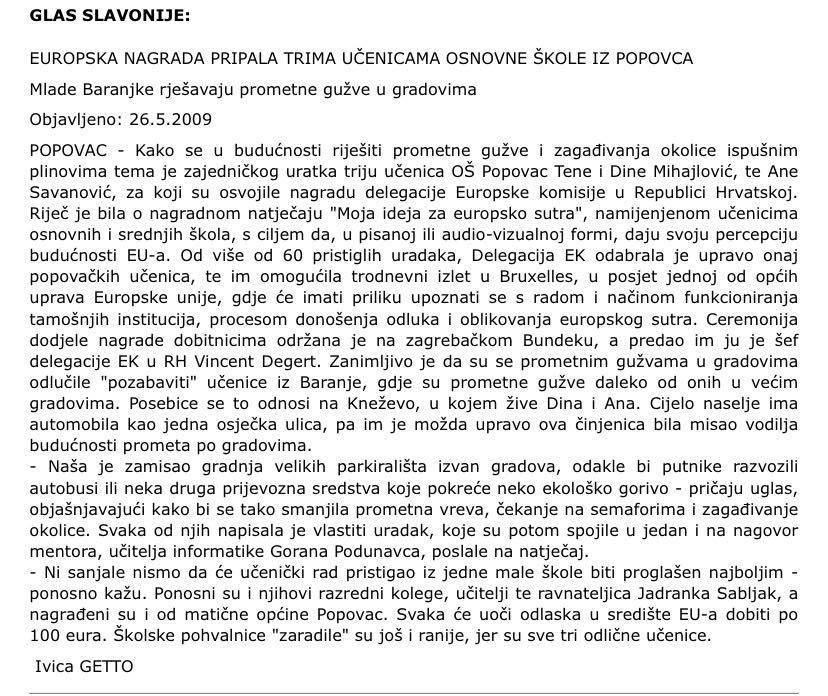
Popovac - How to deal with traffic jams and pollution in the future is the topic of a joint discussion between the three students of OS Popovac, Dina Mihajlovic and Ana Savanovic, for which they won an award from the EC Delegation in the Republic of Croatia. Popovac - How to deal with traffic jams and pollution in the future is the topic of a joint discussion between the three students of OS Popovac, Dina Mihajlovic and Ana Savanovic, for which they won an award from the EC Delegation in the Republic of Croatia.
This was the "My Idea for a European Tomorrow" prize competition, aimed at primary and secondary school students, with the aim of giving their perception of the future of the EU in written or audio-visual form. Out of more than 60 entries, the EC Delegation selected the idea of the Popovac students and awarded them with a three-day trip to Brussels to visit one of the general institutions there, involved in the decision-making process and shaping the European tomorrow.
The award ceremony was held at Zagreb's Bundek and the award was handed to them by the Head of the EC Delegation to the Republic of Croatia, Vincent Degert. It is interesting that when looking at traffic jams in cities, they have decided to seek an ''address'' from students from Baranja, where the traffic jams are far from those in larger cities.
This is especially true of Knezevo, where Dina and Ana live. The whole place has as many cars as one street in Osijek has, so perhaps that fact was the thought process guiding the future of traffic in cities project.
''Our idea is to build large out-of-town parking lots, from which buses or other vehicles powered by environmentally friendly fuel can transport people'' - they state, explaining how this would reduce traffic noise, waiting at traffic lights and pollution in the surrounding area. Each of them wrote their own piece of work, which they then combined into one and at the encouragment of their mentor, computer science teacher Goran Podunavac, they sent it to the competition.
I never dreamed that students' work from a small school would be proclaimed the best - they say proudly. Their classmates, teachers and headmaster Jadranka Sabljak are also proud, and have been honoured by their home municipality of Popovac.
They will receive 100 euros each before leaving for the centre of the EU. These school honours have been "earned" even earlier, as all three are excellent students.
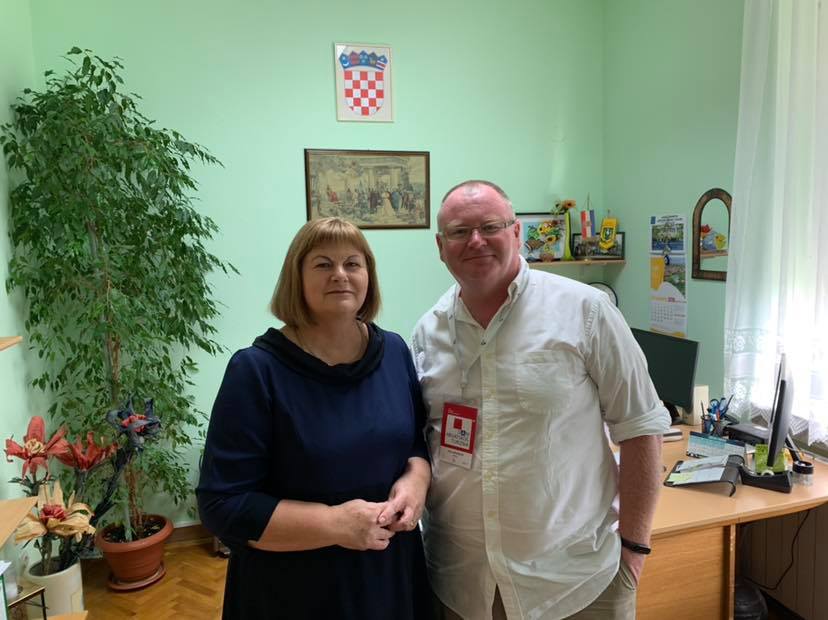
Goran started writing a few stories for us, and when he told me that Popovac Primary School also had a project for young web journalists, I suggested that some might like to write something for TCN, which they did, including one memorable account of what it is like to be the only pupil in the class. You can see the articles from Goran and the kids here. Popovac had also won the title one year of best school website in Croatia and it has been an eco school since 2002. I knew I had to visit.
An opportunity arose last week when I headed east for Days of Croatian Tourism in Slavonia, and Goran kindly arranged a tour of the school and Popovac, including a meeting with headmistress, Jadranka Sabljak. It was great to catch up with Jadranka and hear her vision - she has been at the school for no less than 35 years. Now that would be a great interview.
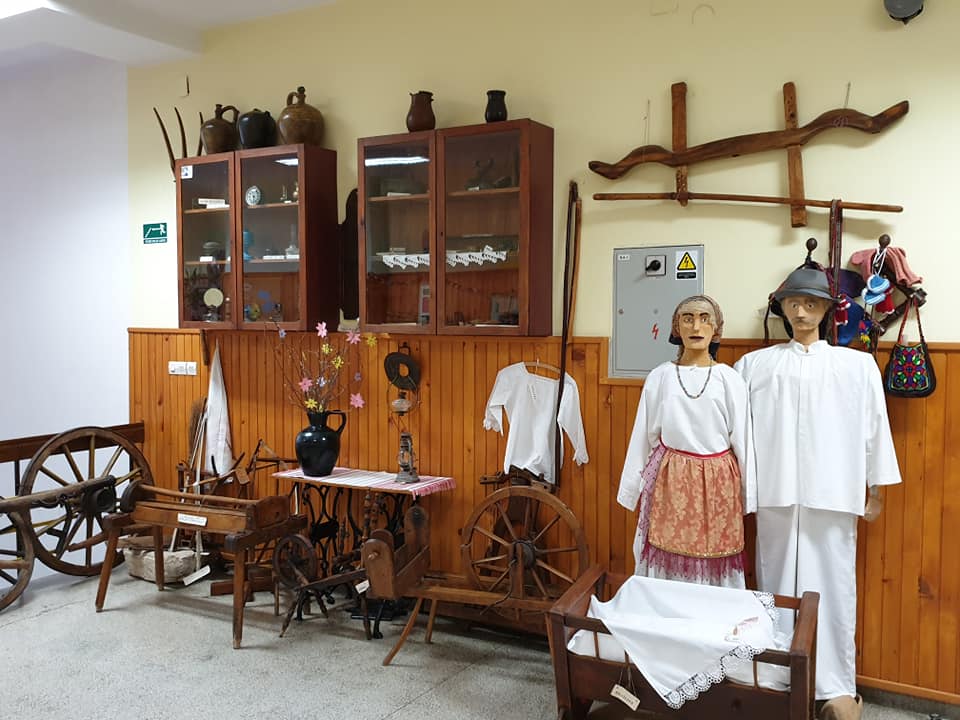
Popovac might be as far from the centre of Croatia as it is possible to be, but rarely have I seen such a lively, loved and creative public institution, whose staff clearly care deeply both about the school and the welfare of its pupils. And its traditions and heritage.
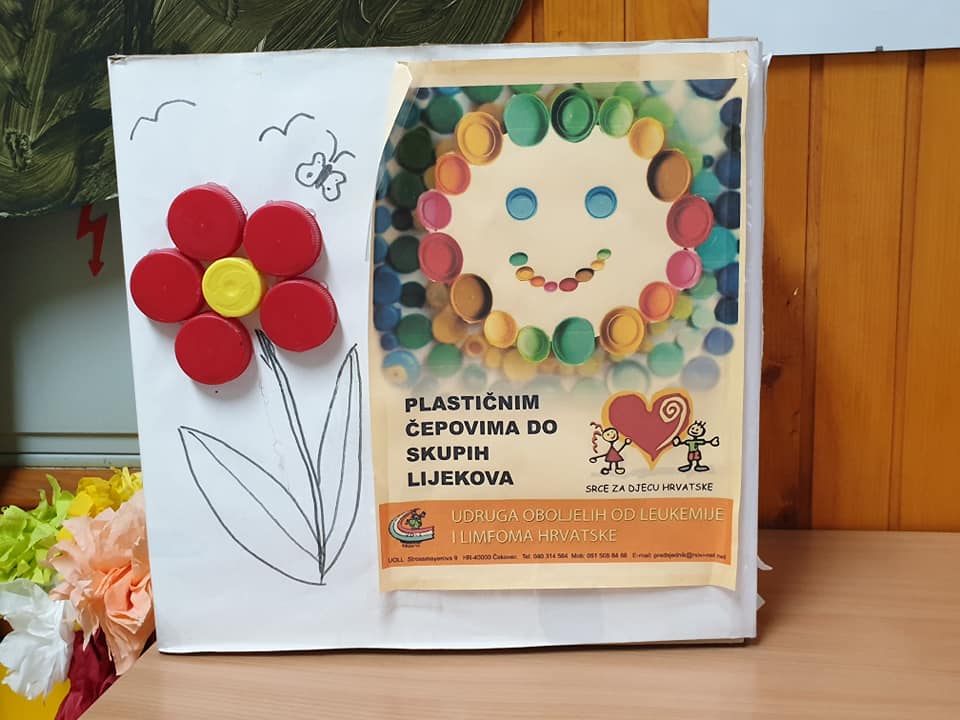
And you don't get to be an eco school for 17 years without the messages of recycling and the environment at every corner - creatively done of course.
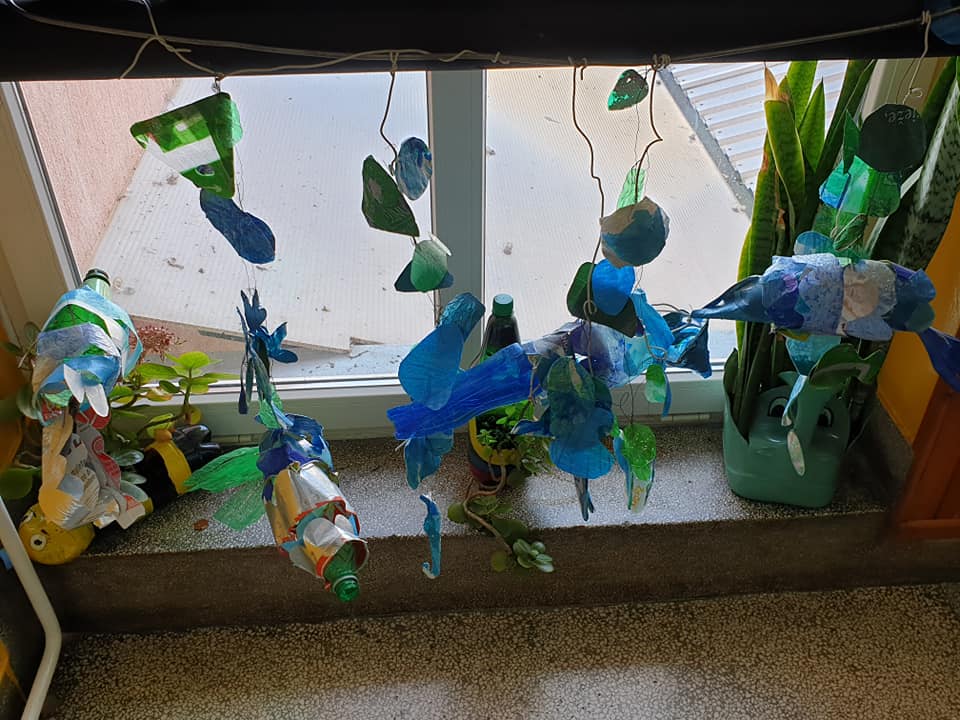
Everywhere... This was one highly creative school.
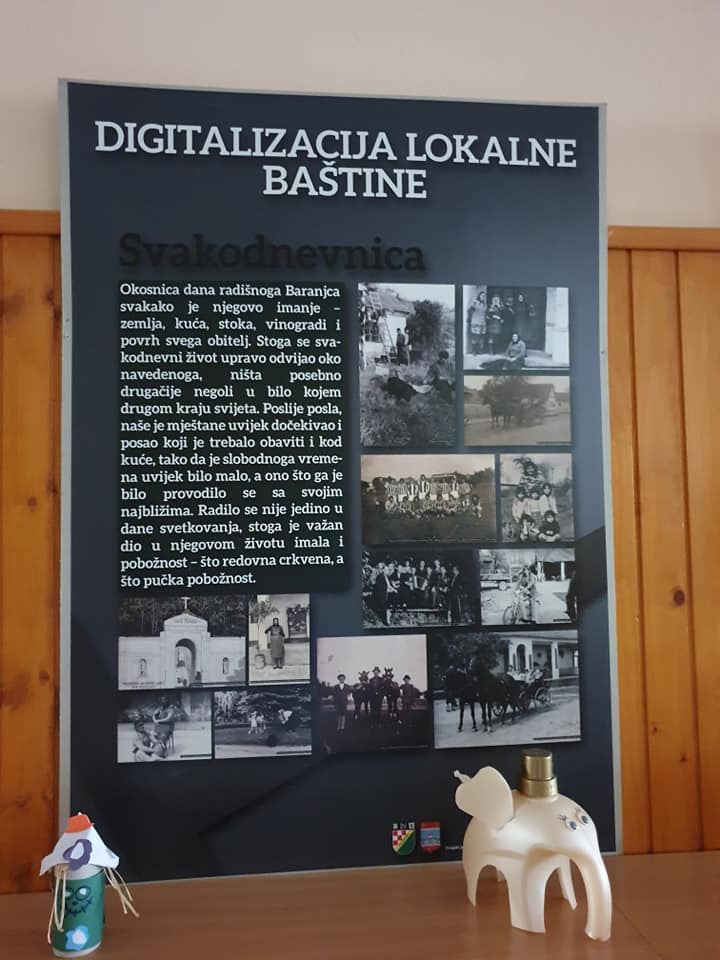
And one very much embracing the future and technology, despite being in such a perceived remote backwater. In some ways Baranja is actually quite accessible. As I noted in my 10 Things I Learned at Days of Croatian Tourism in Slavonia, Baranja is actually the closest point in Croatia to the most important international airport hub in the region - Budapest.
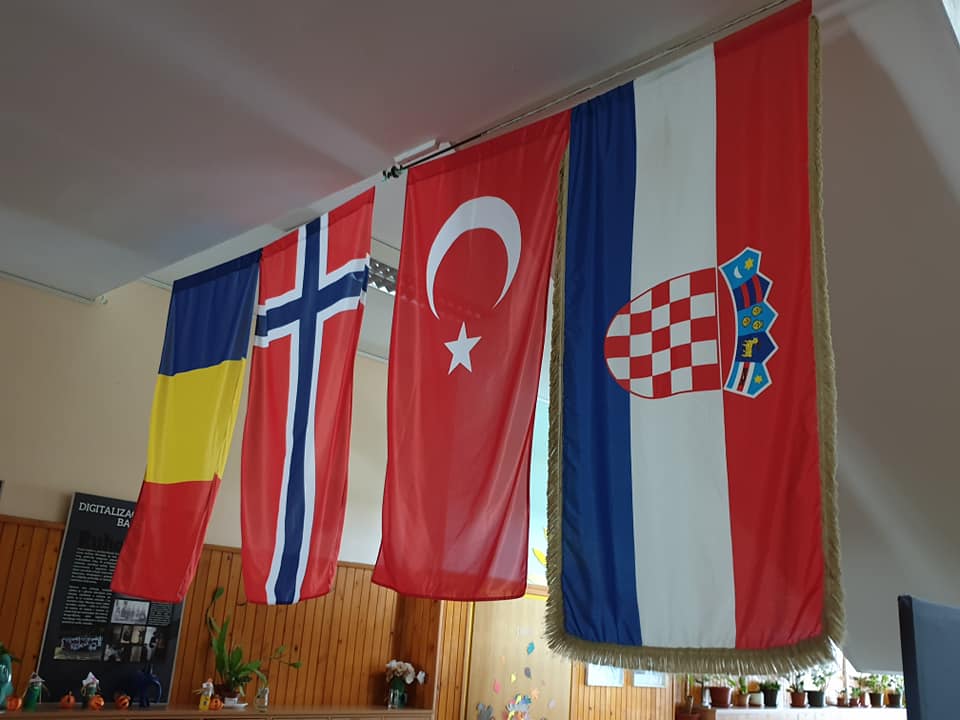
I was surprised to see the flags of Norway, Turkey and Romania hanging alongside the Croatian flag in the main school corridor, but I should not have been, for as Goran wrote for TCN, Popovac is very actively engaged in an Erasmus programme with schools from those countries in a project against plastic pollution. You can read Goran's account here.
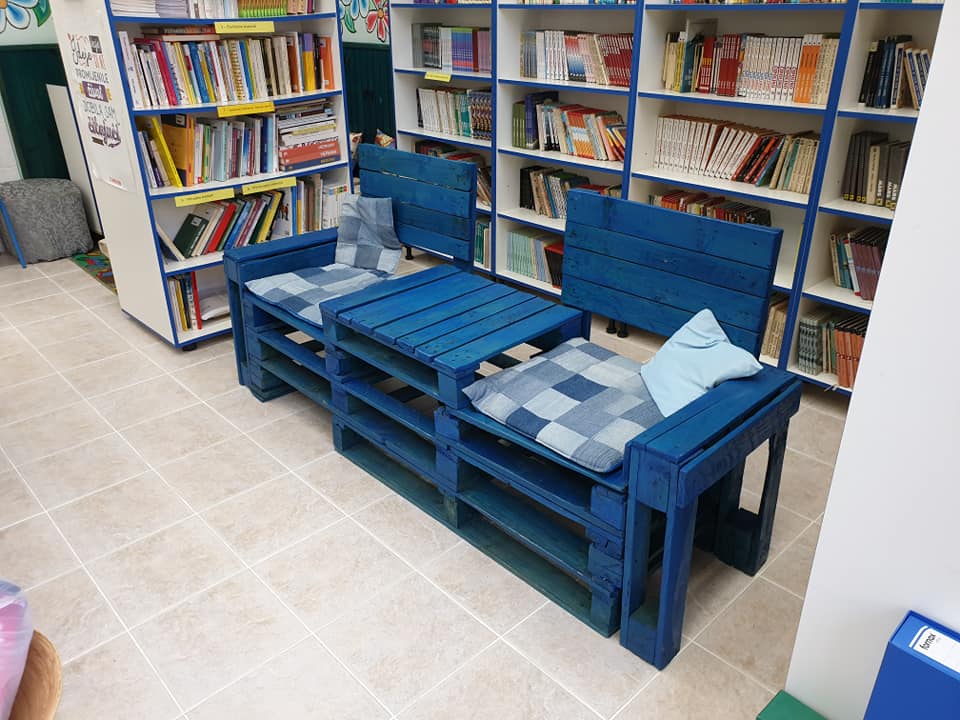
And just as you encountered the Popovac eco credentials, so too the creative side of life. With dedicated teachers like this, school must really be a joyful experience for these Popovac youngsters. The cushions on the chairs are made from old jeans of the kids.
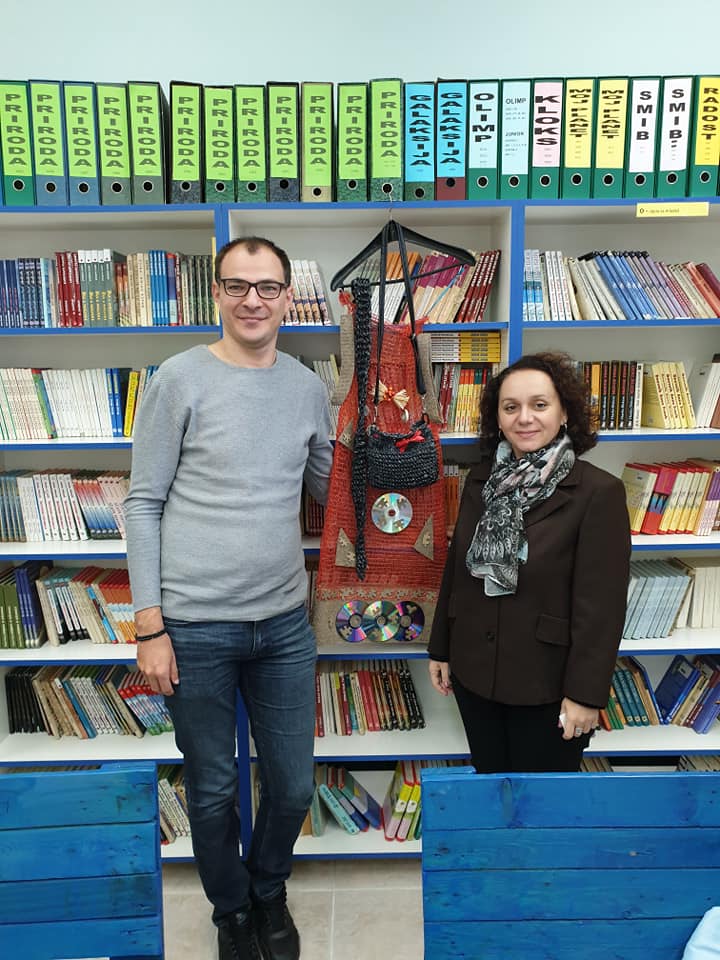
Two of the creative geniuses inspiring young Baranjan minds, in between a party frock made from recycled materials - Goran and creative and bubbly librarian, Marijana Kuna.
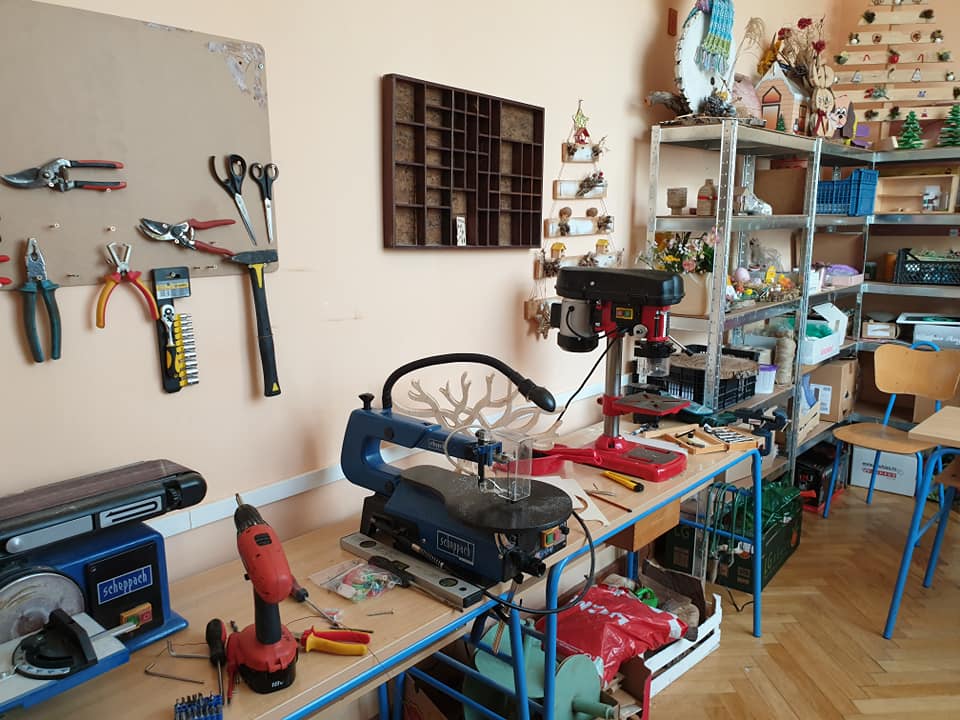
The workshop.
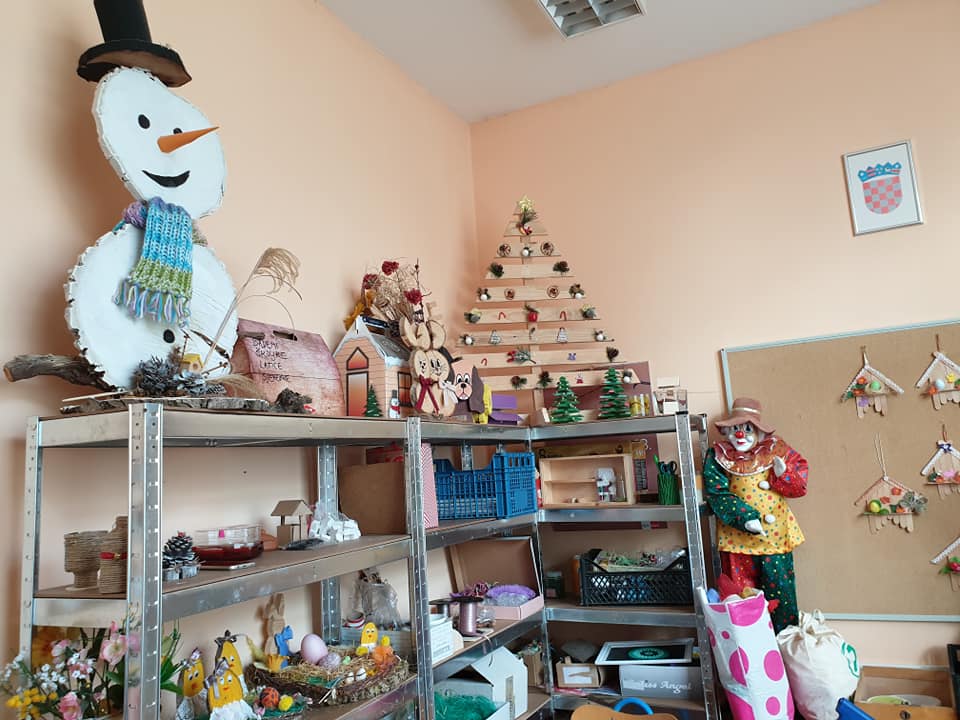
Christmas is coming. Time to turn recycled materials into decorations.
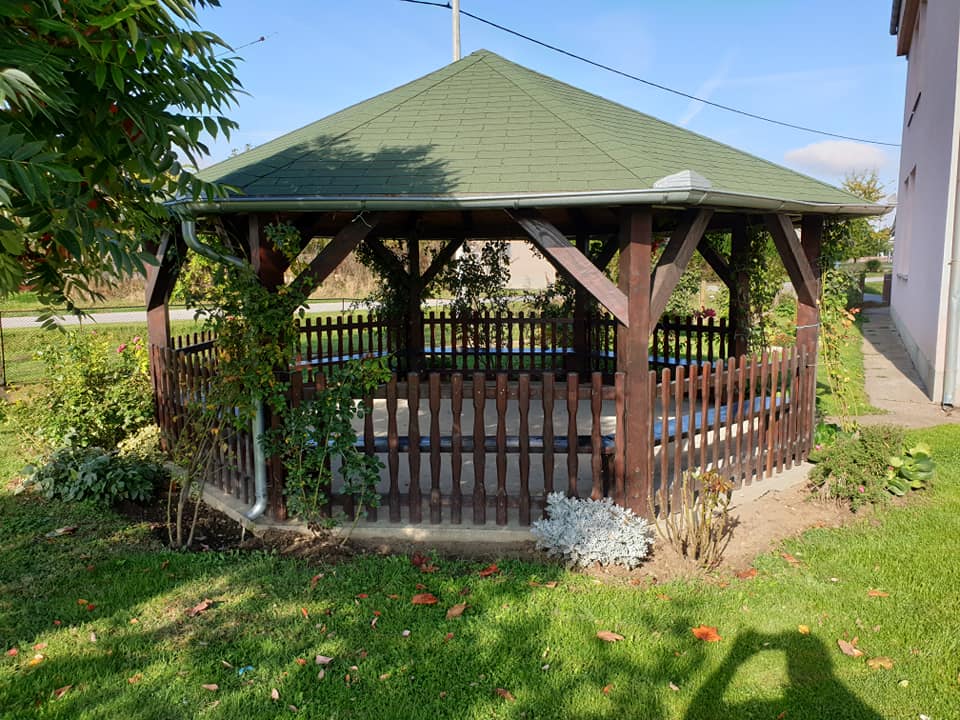
And when the sun shines brightly, as it did on my visit, take a break from the routine of the classroom and take the education to an outdoor classroom in nature.
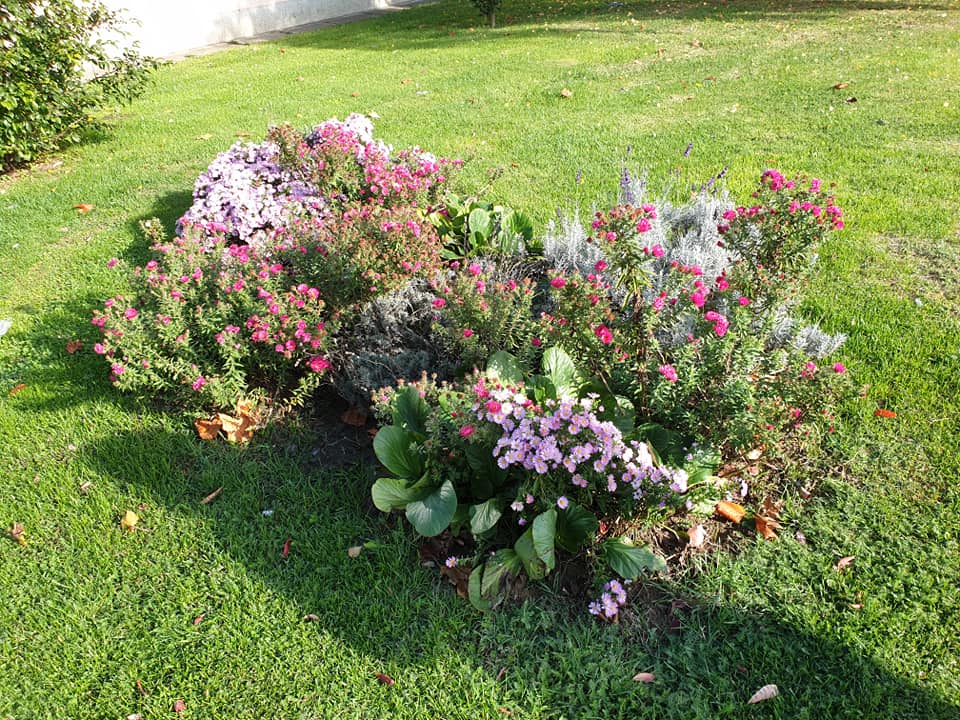
Surrounded by beautifully keep gardens.
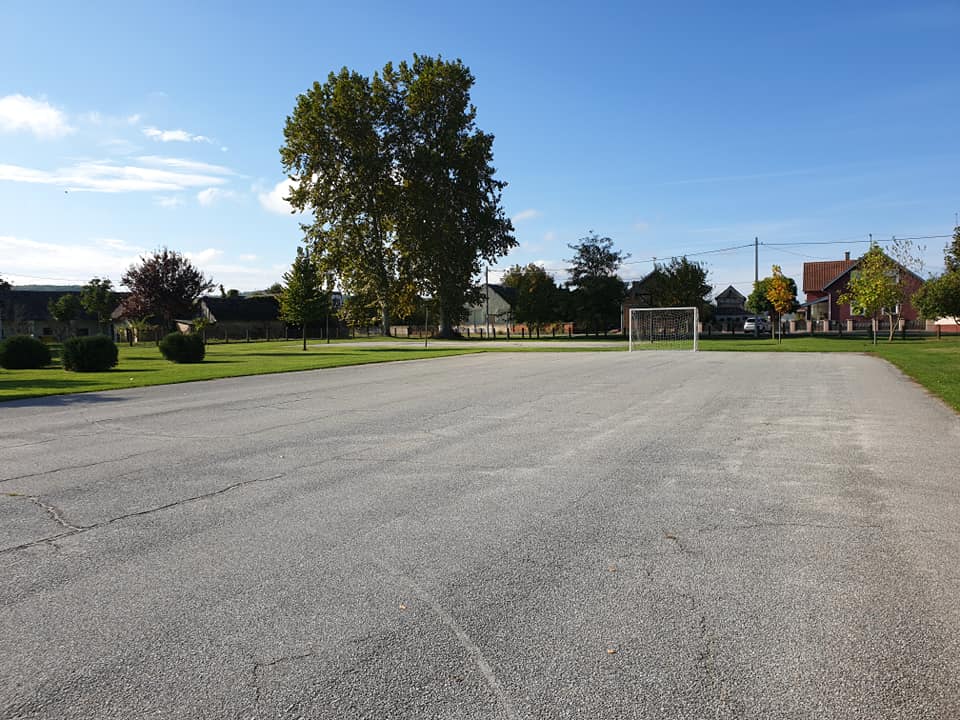
Ample space for physical exercise.
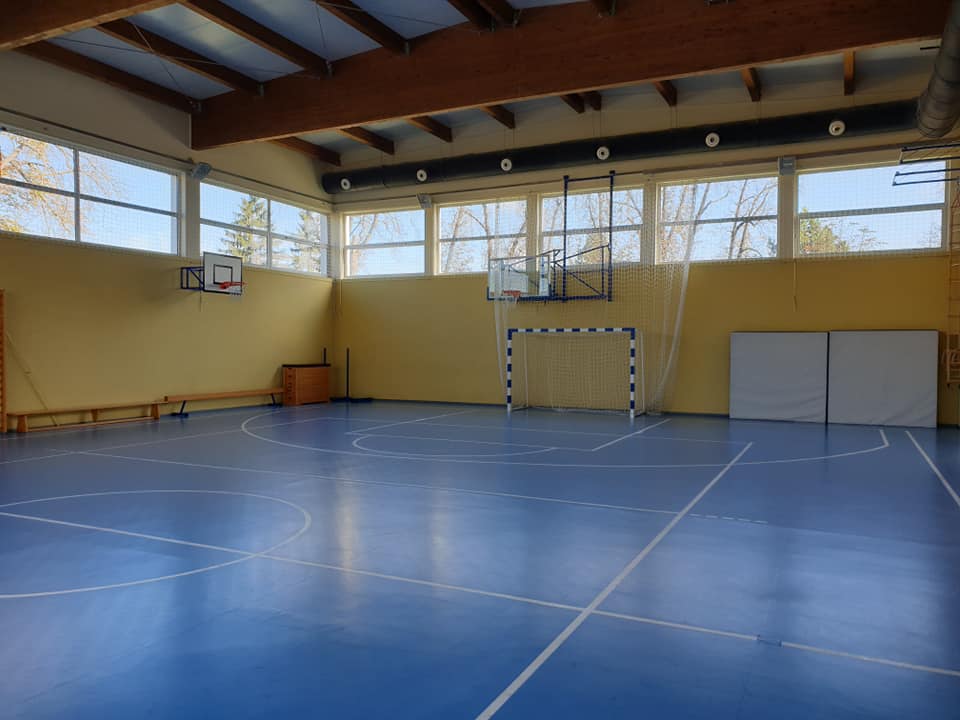
Both inside and out.
"You seem to have everything," I commented, really rather impressed and very much enjoying my visit despite the 05:45 start to the day so that I could fit Popovac into my busy schedule for the day. "Is there anything you are missing?"
"Just one thing. Kids."
The emigration from the east. The simple numbers tell it all. The 2011 census recorded a population of 2,500 people for Popovac and surrounding area. Unofficial estimates from officials put today's figure at about 1,100 just 8 years later.
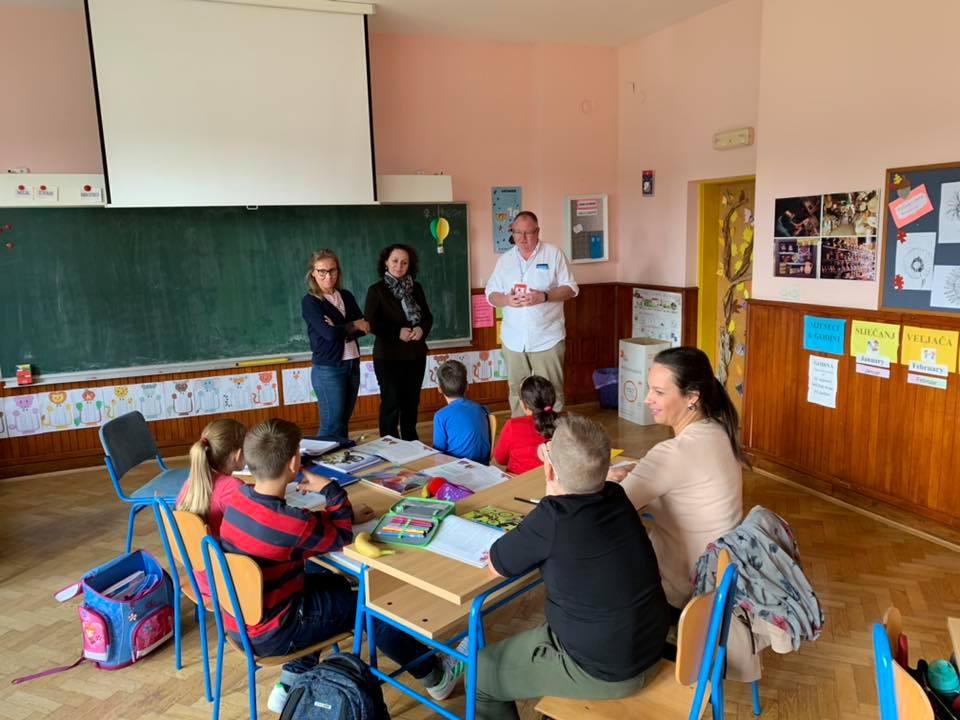
And while I am sure that the lack of employment and opportunities are worries for the parents, the kids are having an idyllic start to life, and there are clearly enjoying the creative environment of their special school. And they were very patient and welcoming when a fat Brit interrupted their classes last week.
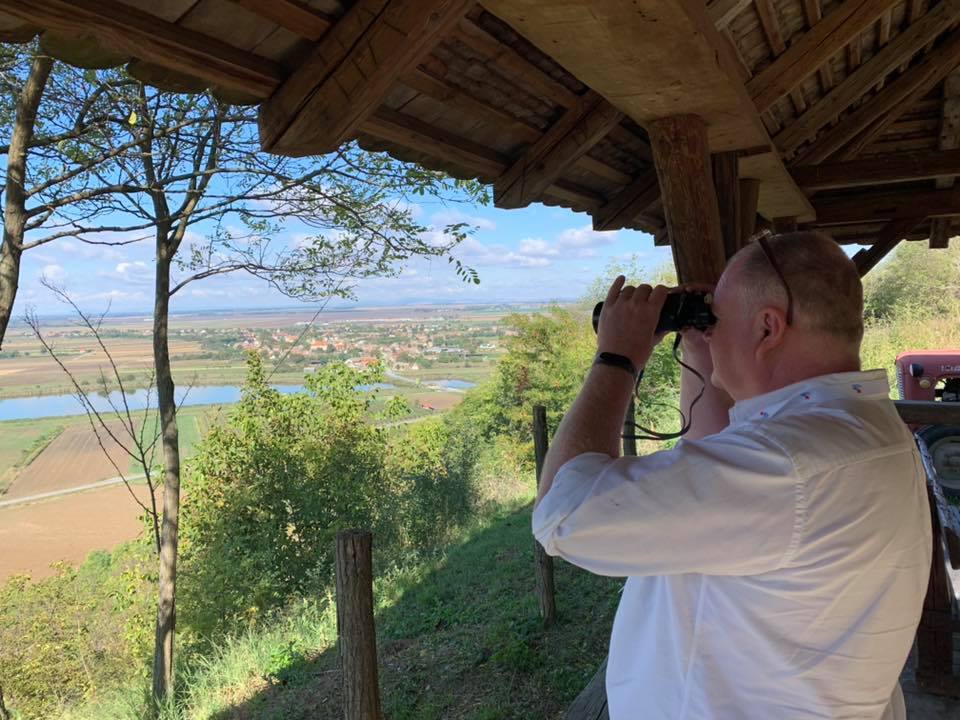
I had come to the east of Croatia knowing I would meet great people (it is impossible not to in Slavonia), but I thought I would come across a lot more despair. Quite the opposite was true. People here have got such a great attitude to life, the nature truly is unspoiled, and there is a great sense of community and a very safe environment.
As I took a tour of the area with Goran, Marijana and the deputy mayor to the highest point of Baranja (not that high!), I looked back over the flatlands of Baranja and Hungary beyond, and I wondered. Emptying today, but for how long?
As they said in the school, the only thing missing in this paradise is jobs which has led to people leaving. In many other aspects, it is a gorgeous place to live, especially for those looking to escape the rat race in exchange for a more natural way of life.
The digital revolution is coming, and it will come to Baranja as well in time. With one estimate of one billion people working remotely by 2035, I for one would not be surprised if a little creative thinking and investment might reverse the emigration and attract people to come and work remotely and raise their kids in this lovely, natural part fo the planet.
During my meeting with headmistress Jadranka, we talked about a couple of projects of collaboration between TCN and Popovac, of which more next year, but I was struck by her initial response to my enquiry.
"We sadly do not have money for projects, but lots of desire, goodwill and our time. We are open to all suggestions."
Perhaps you have a suggestion to establish ties with Popovac. You can follow the latest from Popovac School on Facebook.
To learn more about the magic of eastern Croatia, here are 25 things to know.


